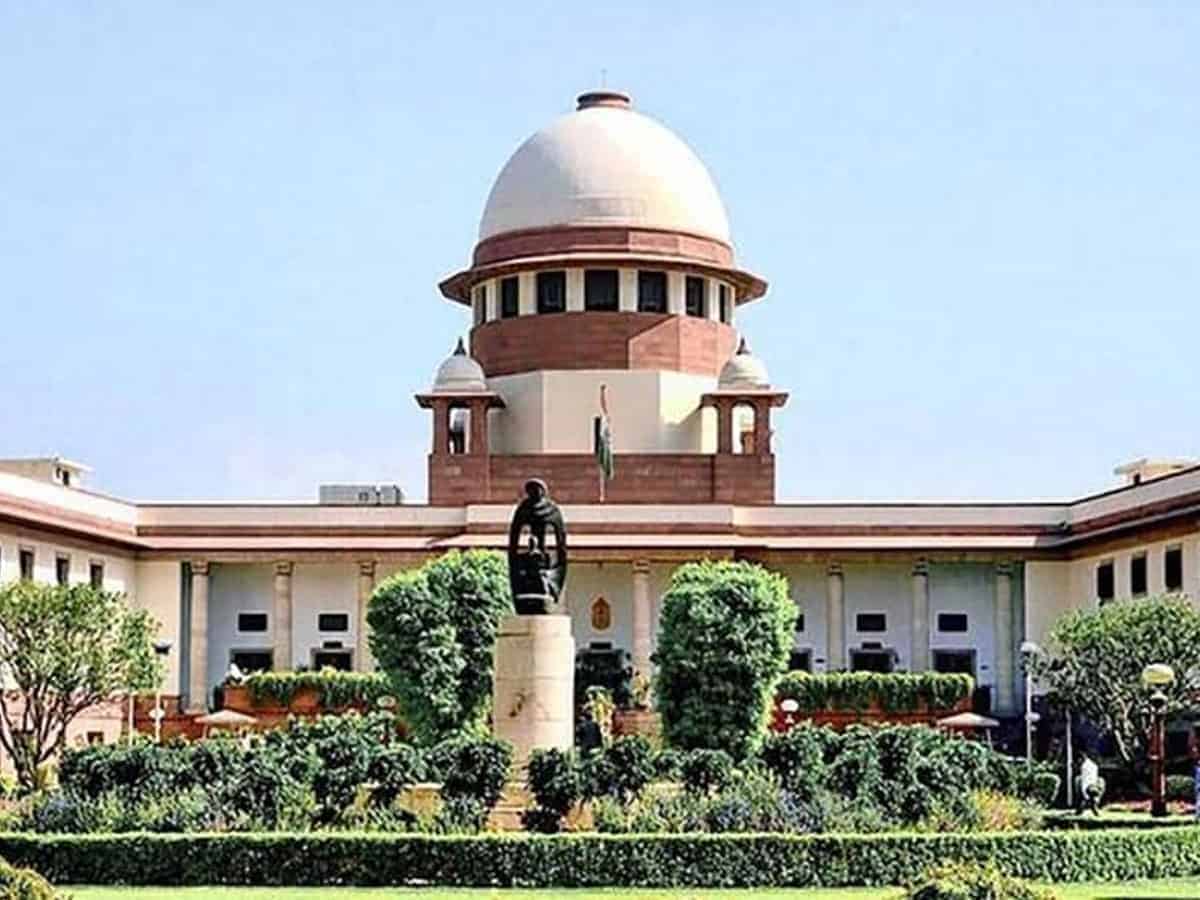
Will the Supreme Court of India decide when Assembly polls should be held in J&K? At least this is the hope of political parties in J&K, which have been waiting for polls over the years. The issue has been raised by the Vice President of the National Conference and former Chief Minister Omar Abdullah, reflecting on the observation made by Chief Justice D Y Chuddrachud, at the time of the hearing of petitions challenging the abrogation of Article 370 in August this year. The CJI had observed that the issue of the polls in J&K is linked to Article 370 and it would be addressed accordingly.
“We hope that the Supreme Court will address the issue of elections in Jammu and Kashmir while delivering its judgment on Article 370 deciding on the petitions challenging the abrogation of Article 370,” said Omar on Monday, echoing the hope of his party, and a few other parties for Assembly polls, which have not been held for more than five years after the last elected Government was dissolved in June 2018, and almost four and a half years after the abrogation of Article 370 in August 2019. Subsequently, the state was split into two union territories, with Ladakh getting separated from the original state, and J&K‘s status was also demoted to that of the UT.
A routine constitutional requirement of holding polls at regular intervals, as is the practice in all other states and UTs in the country, has become a whirlpool of complexities in J&K, and the reason is not far to seek – the political dynamics that changed with the abrogation of Article 370 in August 2019 and the national and international ramification of the move. The nation did endorse, rather celebrated the move as it felt that a thorn in flesh of the Indian nationhood is removed, but that celebration is not turning into polls in J&K, which are most likely to determine how much it is reflection of aspirations of the people in the territory which is the biggest stakeholder in the game. Since BJP has used abrogation of Article 370 in all its election campaigns in all other states, it is but natural that Article 370 its merits and demerits will playout in J&K with more intensity. That is the real test, and the whole world will be watching it.
The parties in J&K have pinned hope on the Supreme Court as during the course of the erring of the arguments on revocation of Article 370, Chief Justice D Y Chandrachud had stated that the issue of the elections in J&K is interlined to Article 370. Taking this statement further, Omar who is known for his logic-oriented arguments, said that it gives hope that the issue of the elections would be addressed by the Supreme Court.
This is not an easy situation, as it reflects on other institutions, particularly the Election Commission of India and the Central government. The ECI ‘s last word heard on the issue was that it will dwell on the issue of J&K polls at a time that it would deem appropriate. That had raised two questions, what is definition of the appropriate time, and what had made it not to take call on the UT polls. What it is waiting for? Till date it has not sent its team to assess the situation in J&K. Who’s feeding the ECI with the reports that tell it that the time is opportune or not for polls. These questions are agitating not only the political parties but also the commoners.
There is a feeling among the people in J&K that they were being denied their democratic rights. And it is the duty of the ECI to respect the democratic aspirations of the people and hold polls according to the schedule.
On June 19, 2018, when BJP withdrew support to the Mehbooba Mufti-led coalition government, the state assembly was kept under suspended animation, not dissolved. The then Governor N N Vohra, after having determined that no political party or combination of parties, were in a position to form an alternate government, could have opted for dissolution of the Assembly, but he did not do so, obviously because Centre asked him to do what he did. He was a through and through Delhi’s man, who as Governor always looked to keep the Centre in good humour. But the Centre, however, had something else in mind. He was sacked unceremoniously within two months of his act on the Assembly. He had completed his second innings as Governor on June 25, 2018, and as such his departure from Srinagar Raj Bhawan was imminent.
But the matters came to head, when Vohra’s successor Satya Pal Malik, dissolved the Assembly on November 21, 2018 when Altaf Bukhari was chosen as a consensus candidate for the Chief Minister’s position by NC, PDP and Congress and few independents. A rival claim was made by People’s Conference Sajad Gani Lone. Instead of inviting the parties to form the government or test their respective strength on the floor of the House, he dissolved the Assembly. He also did what Delhi told him to do.
The constitutional obligation was to intimate the Election Commission to hold the polls within next six months. Nothing happened. There was no word from the Election Commission even after it was pointed out that why it was shying away from Assembly polls while conducting the Lok Sabha polls in April-May 2019.
That’s the history, and a momentous chapter was added when Article 370 was abrogated. Now since the verdict on the constitutional provision is reserved, it is natural for the parties to hope that, ultimately, the Supreme Court may address the issue.



